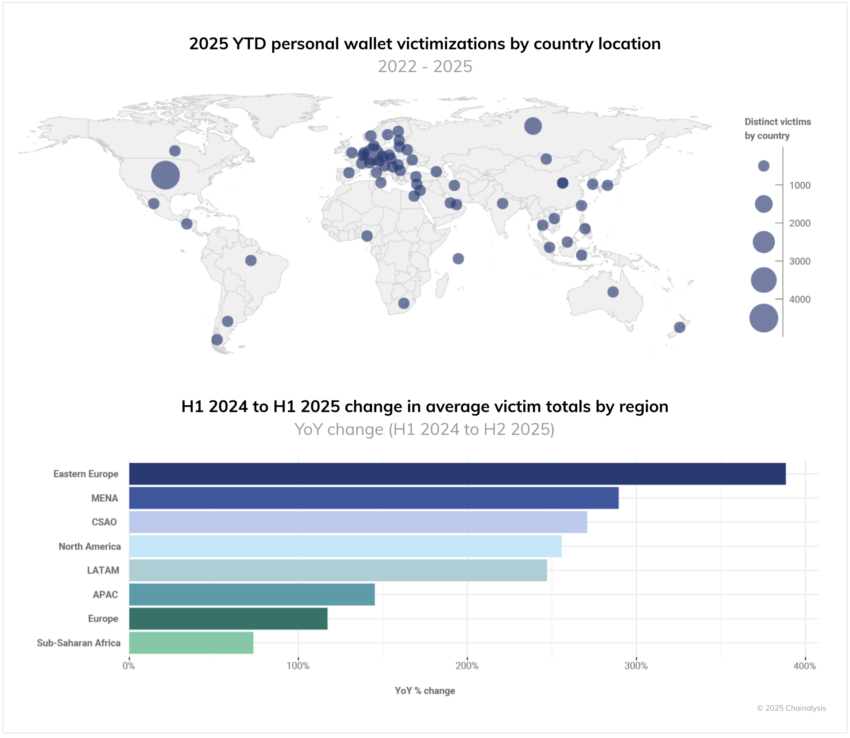On August 7, 2025, the US Department of Justice convicted Tornado Cash co-founder Roman Storm for running an unlicensed money transmission business. The case, seen as a crackdown on crypto mixing infrastructure, directly affects hacker groups’ laundering networks.
Weeks later, on August 26, the FBI confirmed that the Lazarus Group was behind the $1.5 billion Bybit hack — the most significant theft in crypto history.
“North Korean Hacks” Stretch Across Global Markets
Why Important
The Bybit breach and the Tornado Cash verdict highlight how cybercrime and regulation collide. For investors and exchanges, this is not just about stolen assets — it is about rising compliance costs, tighter oversight, and the perception that crypto has moved from a financial risk to a national security issue.
Latest Update
The FBI’s confirmation of the Bybit theft and the DOJ’s conviction of Tornado Cash’s co-founder mark a turning point. Authorities now pursue both the hackers and the infrastructure that launders their proceeds. Moreover, regulators signal that enforcement will broaden to cover perpetrators and enablers across the industry.
Background Context
Since 2017, the Lazarus Group, an unknown hacker group alleged to be run by the North Korean government, has targeted banks and crypto exchanges to generate funds. The narrative of its origin stems from the fact that, because international sanctions restricted trade, Pyongyang pivoted to cyber theft. By 2025, the pace accelerated, with attacks spanning Asia, the US, and Europe. At the same time, global la
Go to Source to See Full Article
Author: Shota Oba

